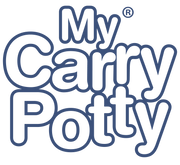Potty training is not just about teaching your toddler to use the potty, and ultimately, the toilet; it’s also about how you communicate during the process. The words and tones we use really can influence how quickly and successfully a child learns to use the potty or achieve any other milestone. Positive communication can make potty training a more enjoyable and effective experience for both toddlers and parents.
Here are some best practices for communicating with your potty training toddler to ensure they feel supported and motivated.
1. Avoid Negative Language
Language plays a crucial role in shaping a child's potty training experience. Avoid phrases like "You should have told me earlier" or "Not again!" which might instil feelings of shame or embarrassment. Negative language can make toddlers feel bad about accidents, which are a normal part of the learning process. Instead, use supportive and positive words even when things don’t go as planned.
2. Be Mindful of How You Discuss Bodily Functions
It’s important to communicate about bodily functions in a way that doesn’t cause your child to feel self-conscious. Describing waste as "stinky" or "yucky" might make a toddler feel embarrassed about a natural bodily function. Use neutral language like "It's time to go poo-poo" or "Did you do a wee-wee?" This keeps the process factual and free from any negative connotations.
3. Never Scold for Accidents
Scolding a toddler for having an accident can lead to negative feelings about potty training and can often prolong the process. If an accident occurs, it’s key not to react harshly. Instead, reassure your child that accidents are part of learning something new. A simple "That’s okay, you’ll get it next time!" maintains their confidence and motivation.
4. Keep the Atmosphere Light and Fun
Potty training should be a positive learning experience. Keeping the atmosphere light-hearted and fun can encourage your toddler to engage more willingly in the process. Celebrate successes with small rewards, clapping, singing, or a happy dance. This not only makes potty training enjoyable but also reinforces the behaviour you want to see.
5. Use Encouraging Words and Celebrate Small Wins
Always acknowledge and celebrate achievements, no matter how small. Use phrases like "Great job sitting on the potty!" or "You’re doing so well remembering to try." Positive reinforcement helps build your child’s self-esteem and encourages them to continue their efforts.
6. Offer Choices to Empower Them
Giving toddlers a sense of control can boost their enthusiasm for potty training. Let them choose from our range of potties or their toilet seat & stool. Small choices help them feel invested in the process and more inclined to participate actively.
7. Practice Patience and Consistency
Consistency in how you communicate is key. Always responding in the same, predictable way helps your toddler understand and learn expectations around potty training. Being patient and consistent with your communication teaches them that they are in a safe and supportive environment to master this new lifeskill.
8. Educate Through Storytelling
Children love stories and can learn effectively through them. Use simple stories to explain potty training, or read books about toilet training during story-time. This method helps them understand the process and see other children experiencing the same journey, making them feel less alone in their efforts. Our founder, Amanda Jenner, has put together a collection of expertly written books to help you as a parent and your toddler to learn about the potty training journey.
The way you communicate during potty training can significantly impact your child's success and attitude towards the process. By focusing on positive reinforcement, maintaining a fun atmosphere, and being mindful of your language, you create a supportive environment that facilitates easier learning.
Remember, every child is different, and what works for one may not work for another. Stay flexible, observe what resonates with your child, and adjust your approach accordingly.
Potty training is not just about achieving a milestone but also about nurturing your child’s growth and confidence.
Visibility Hidden
SUBSCRIBE FOR 10% OFF ALL ORDERS
 NO.1 BEST SELLER ON AMAZON & EBAY
NO.1 BEST SELLER ON AMAZON & EBAY
 FREE DELIVERY FOR ORDERS OVER £50
FREE DELIVERY FOR ORDERS OVER £50
 PAY IN 3 WITH KLARNA
PAY IN 3 WITH KLARNA



